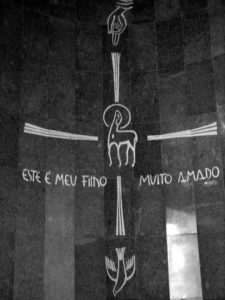Two times, before Jesus affirms the words of finality “It is finished”, he expresses in the book of John that He was sent by God the Father to finish the work that God had ordained for Him (John 4:34, John 5:36). Then when Jesus prays for Himself, He states that He has glorified God the Father on earth and that He has finished the work, that God the Father had given Him (John 17:4). Then on the Cross, Jesus’ sixth saying was “Tetelastai” meaning it is finished; meaning that the access to the throne of God was opened and man could be restored into a relationship with God by simply believing in Jesus.
God has in deed finished the work of redemption for all mankind, by offering His Only begotten Son, Jesus Christ, as a perfect offering for our sins, but His requirement (will) which is for all men to be saved (1 Timothy 2:4), i.e., to come to repentance (2 Peter 3:9), is still pending. It is commissioned to all those who have come to the knowledge of the truth about Jesus; to you and me. As Christians (Christ-ones), we are called to finish the assignment (commission) that God has bestowed upon each one of us. There is no unfinished business with God. He is the author AND he is the finisher of our faith (Hebrews 12:2).
Like Jesus, can we be determined as well to finish the work that is assigned to us; in glorifying God (John 17:4), in calling all to repentance (2 Peter 3:9); in the great commission (Matthew 28: 19-20). Imagine for a moment, as to what our state would be when we meet Jesus face to face and He asks us about our work on earth. Would it be plight or pleasure? Today, can you/I say that “I have finished the race!”
John 17:3-4 (KJV)
3 And this is life eternal, that they might know thee the only true God, and Jesus Christ, whom thou hast sent.
4 I have glorified thee on the earth: I have finished the work which thou gavest me to do.
2 Peter 3:9 (KJV)
9 The Lord is not slack concerning his promise, as some men count slackness; but is longsuffering to us-ward, not willing that any should perish, but that all should come to repentance.


